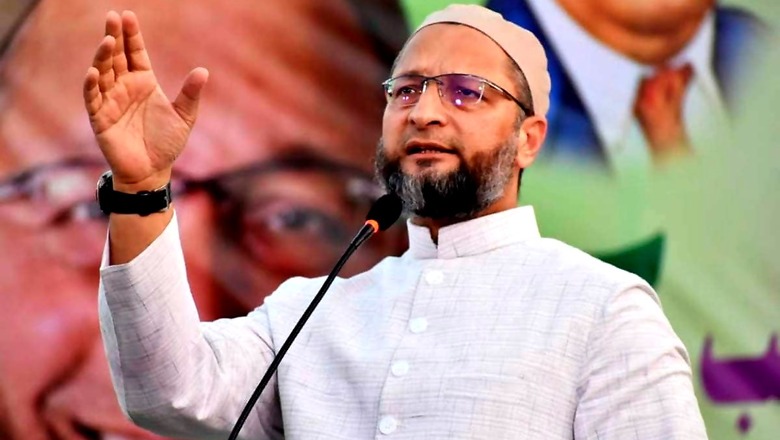
views
The late Bahujan Samaj Party (BSP) founder Kanshi Ram’s trademark slogan was, “Jis ki jitni sankhaya bhaari, uski utni bhaagidari” (share in power will depend on (a caste’s) numerical strength). Kanshi Ram coined the rallying cry to signal two messages. With an average 21 per cent population in every electoral constituency, the Dalits as a voting bloc and a social grouping could not be taken for granted by political parties. Second, it was time the Dalits leveraged their numbers to prove that they will not be appendages to other castes and communities because they had the potential to emerge as a political entity unto themselves. It was a message for the Congress that for decades nurtured the Dalits as a “vote bank” to augment the votes it got from other castes and communities. Largely, the Congress treated the scheduled castes as an “add-on” in a social coalition that was always helmed by an upper caste.
BSP’s Success Story
As the BSP built its political capital on the numerical strength of the Dalits, it triggered a process that years of affirmative action hinging on the statutory reservation in education and jobs could not. The BSP set in motion the evolution of a political consciousness in the Dalits, underpinned on the recognition that they were not around to be politically subservient to the Brahmins or Rajputs or an intermediate caste and vote according to the diktat of the leaders of these communities. The groundbreaking development was encapsulated in Kanshi Ram’s message to his protégé Mayawati’s parents when she was coaxed into joining the BSP. Her parents wanted their daughter to join the civil service. Kanshi Ram bluntly told them he would ensure that she soared to such heights in politics that IAS and IPS officers would take their command from her.
ALSO READ| Owaisi Joins Dhinakaran to Enter Tamil Nadu Poll Fray, Alliance Could Eat Into DMK Votes
The BSP was not an overnight success. When it finally made it in 2007, after Mayawati won a majority of her own in Uttar Pradesh and became its first Dalit chief minister, the underlying irony was evident. Mayawati, advised and helped by a Brahmin aide, Satish Chandra Mishra, mobilised the votes of the upper castes, the Jats and some backward castes to finally shake off the BSP’s dependence on an ally who would seat her in power. By themselves, the Dalits couldn’t have taken Mayawati to her destination. In the stormy prelude to her success, the BSP aligned with the Samajwadi Party, the Congress and the BJP. The partnerships were short-lived but invariably worked to the BSP’s advantage and the disadvantage of the allies. Kanshi Ram took the truism “means justifying the end to acquire power” to its logical end. It didn’t matter if he had to sup with a BJP. The BSP became an exemplar for smaller entities, founded entirely on identity politics and unencumbered by the exigencies of ideology and “morality”, wanting political power on their own terms.
Emulating Kanshi Ram Model
One of them is Asaduddin Owaisi’s All India Majlis-e-Ittehadul Muslimeen (AIMIM). Rooted in Telangana—Owaisi has been the Hyderabad MP for several terms—by 2014, the AIMIM spread its wings beyond the parent state and ventured into Maharashtra, Telangana’s neighbour. In the Assembly elections that year, the AIMIM fielded 24 candidates, including three Dalits, of whom two won. Despite its legacy as a “pro-Muslim” and “anti-Hindu” party, Owaisi brought in the “Bahujan” element in his discourse and coined a new slogan, “Jai Bhim (after Bhimrao Ambedkar), Jai Meem (Muslim)”. Owaisi claimed he had created a platform for coalescing the Muslims, OBCs and Dalits “to fight injustice”.
The need to broad-base the AIMIM’s support, at least notionally, stemmed from various compulsions. In the highly polarised contemporary socio-political milieu, where Muslim representation in the legislatures has steadily declined, a Muslim party leader is a sitting duck: if he’s accused of speaking up for sectional interests, the charge sticks, as it does with Owaisi. Bringing in non-upper castes in the party forum might help shake off the communal tag, take the rhetoric away from religion to class (economic discrimination, human right issues) and give the AIMIM the ideological validation to do business with parties that might otherwise baulk at a “sectarian” force. In Maharashtra, Owaisi partnered with Prakash Ambedkar’s Vanchit Bahujan Aghadi (VBA) in the 2019 Lok Sabha polls. The alliance fetched one seat for Owaisi’s party, but in a pique Ambedkar walked away from it before the Assembly elections that year.
Owaisi’s next breakthrough was in the 2020 Bihar Assembly polls where he concentrated on the Seemanchal region, bordering West Bengal, the reason being it was the “most backward region” populated by Muslims, Dalits and Adivasis. His party won five of the 20 seats it contested. The AIMIM was blamed for taking away the Muslim votes that might have otherwise gone to the Rashtriya Janata Dal (RJD)-Congress and denying the “secular” combine a majority. Kanshi Ram lived with the same insinuation when the BSP started out, of “damaging” the Congress by eating into the Dalit votes.
The Road to Uttar Pradesh
The innuendo raises questions like, can a party be denied democratic space simply because it threatens another party making a play for the same votes? Was the larger party so vulnerable that it couldn’t stop its core base being encroached upon? In the Seemanchal region, post-poll analyses showed that there was disquiet among the Muslims with the RJD-Congress combine for not articulating their concerns and interests (notably the CAA-NRC) forcefully in the public arena, ostensibly for fear of giving the BJP a handle. Kanshi Ram built the BSP precisely on the perception that while the Dalits were electoral fodder to the Congress, in power, it did little to address their concerns.
ALSO READ| AIMIM Decides to Field 13 Candidates in West Bengal’s Murshidabad
The AIMIM had ambitions to leave its footprint in West Bengal that has a sizeable Muslim population. Owaisi initially looked at forging a tie-up with the influential Islamic cleric-turned-politician, Abbas Siddiqui, who floated the Indian Secular Front (ISF). The ISF was wooed and won over by the Congress-Left Front, leaving Owaisi a bit out-of-joint. He kept out of Assam where the Muslims (34-35 per cent) are affiliated with Badruddin Ajmal’s All India United Democratic Front.
The AIMIM’s next big foray will likely be in Uttar Pradesh that votes early 2022. Owaisi was part of a Bihar coalition that also had the BSP but it is unlikely that Mayawati will opt for him as a partner. The AIMIM will also find it problematic to explain and justify Mayawati’s pro-BJP overtures in the recent past. As of now, the AIMIM has formed a front with Om Prakash Rajbhar’s Suheldev Bharatiya Samaj Party, a former BJP ally, which has a base among the backward caste Rajbhars of east and east-central UP. The interests are mutual: Owaisi can’t be seen as a sectarian force in a BJP-overshadowed polity. Rajbhar needs an add-on.
Read all the Latest News, Breaking News and Coronavirus News here




















Comments
0 comment